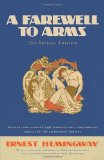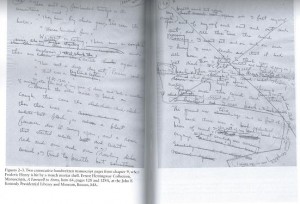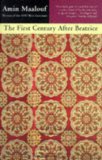I’ve been flicking through publisher catalogues and asking booksellers and publicists about the most exciting books to be published in the UK in 2013. Next week I’ll let you know which debut authors I’m excited about, but this week it is the turn of the authors we are already familiar with.
Here are the 2013 new releases that caught my eye:
Note: UK release month shown, date may be different in other countries.
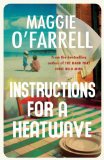
February, Tinder Press
Maggie O’Farrell is an author I discovered through blogging. I enjoyed The Hand That First Held Mine and The Vanishing Act of Esme Lennox so am looking forward to trying her new book about a father who unexpectedly disappears. It is already getting a lot of buzz from the blogging community so it is definitely one to look out for.
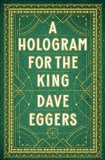
February, Penguin
Zeitoun is one of the best books I’ve read this year and I think Eggers could become one of my favourite authors. A Hologram for the King has already been a big hit in the US. It makes its UK debut in 2013 and I’m looking forward to reading Egger’s take on an American business man struggling to make a life for himself in Saudi Arabia.

March, Harvill Secker
I have a love/hate relationship with Coetzee’s writing, but I’m hoping his latest book about a man and boy arriving in a mysterious desert camp will be more similar to Disgrace than his autobiographies.
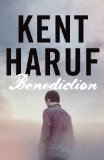
March, Picador
Haruf is one of those authors I’ve always wanted to try. I own a copy of Plainsong and will probably try to read that first, but I’m sure a lot of you will be excited to learn that he is releasing a new book about life and death, family and community, set out on the high plains of Colorado.
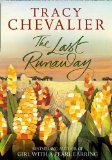
March, Harper Collins
Chevalier is famous for writing The Girl with the Pearl Earring. She returns in 2013 with a new book set in a Quaker community.
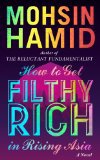
March, Penguin
I loved The Reluctant Fundamentalist so hope this new book about a man’s journey from impoverished rural boy to corporate tycoon will be just as compelling.
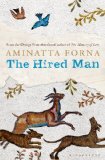
March, Bloomsbury
The Memory of Love was shortlisted for the 2011 Orange Prize and, although it was a bit too slow for me, the quality of the writing was enough to persuade me to give her another try. Her latest book is set in a quiet Croatian town, but again looks at the effects of war on a community. I’m sure this is one to watch when the prize lists start to be announced.
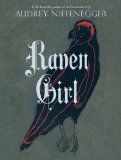
May, Abrams Comicarts
I think this book wins premise of the year:
A postman encounters a fledgling raven while on the edge of his route and decides to take her home. The unlikely couple fall in love and conceive a child – an extraordinary raven girl trapped in a human body.
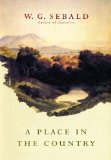
May, Hamish Hamilton
Sebald is another author I’ve always wanted to try. His new book fuses biography and essay to reflect on six of the figures who shaped him as a person and as a writer, from Jean-Jacques Rousseau to Jan Peter Tripp.
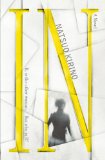
June, Harvill Secker
Out by Natsuo Kirino is my favourite thriller so I’m very excited that her new book  is going to be published here later this year. In contains an investigation into a best-selling author and promises to question the differences between life and literature. I hope it lives up to my exceedingly high expectations.
is going to be published here later this year. In contains an investigation into a best-selling author and promises to question the differences between life and literature. I hope it lives up to my exceedingly high expectations.
Untitled Novel by Diane Setterfield
May, Orion
I couldn’t find any details about this book, but if it as compelling as The Thirteenth Tale it will be a great book.
Americanah by Chimamanda Ngozi Adichie
May, 4th Estate
Chimamanda Ngozi Adichie’s Half of a Yellow Sun and Purple Hibiscus were both outstanding. Her new book sees a slight change in that it is moving away from Africa and spanning three continents, but I am sure it will be just as good. I am very excited about this one.
May, Bloomsbury
I loved The Kite Runner and A Thousand Splendid Suns so was excited to hear about Hosseini’s third novel. This one investigates the relationships formed between brothers and sisters and promises to be equally compelling. I can’t wait to read it!
May, Sceptre
I only discovered Melvyn Bragg’s writing this year, but I am shocked he isn’t more widely read. I’m going to continue reading The Soldier’s Return Trilogy, but this is one to keep an eye out for too.
A Suitable Girl by Vikram Seth
Date TBC, Penguin
I have been saying it for months/years, but I really am going to read A Suitable Boy soon! It’s much anticipated sequel is going to be published next year so that should give me the incentive to start now!
Untitled Novel by Rohinton Mistry
December, Faber
Saving the best for last! I know nothing about this book, but I am still more excited about it than any other 2013 publication. Rohinton Mistry is my favourite author and it doesn’t really matter what it is about – Mistry’s writing is so amazing that I guarantee this book will be fantastic!
Which 2013 books are you most looking forward to?
Come back next week to see which books by debut/lesser known authors I’m looking forward to!
